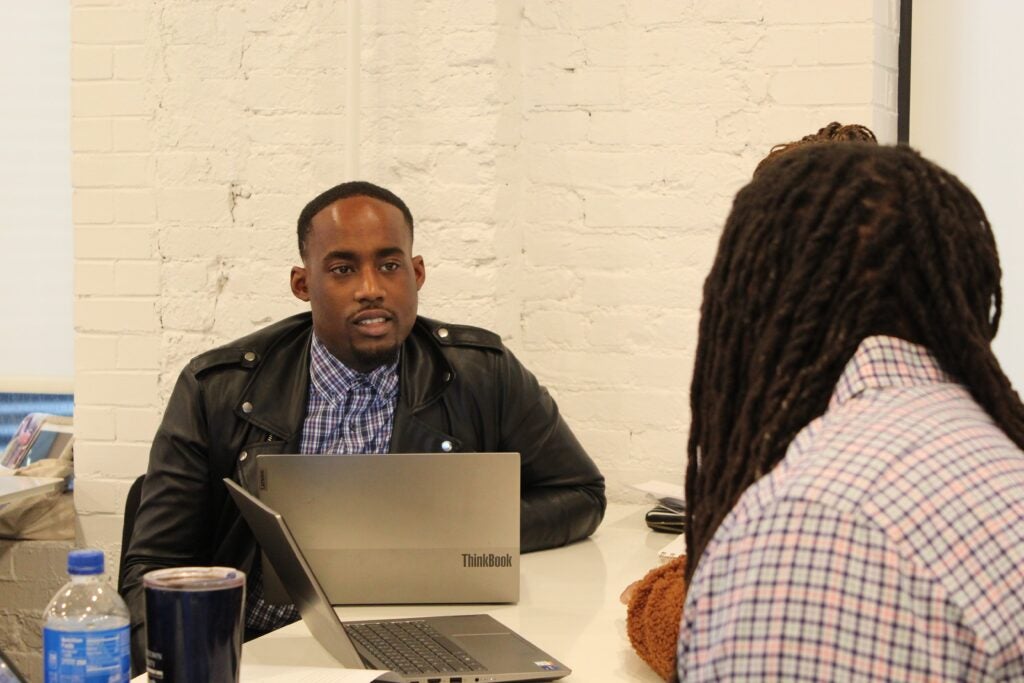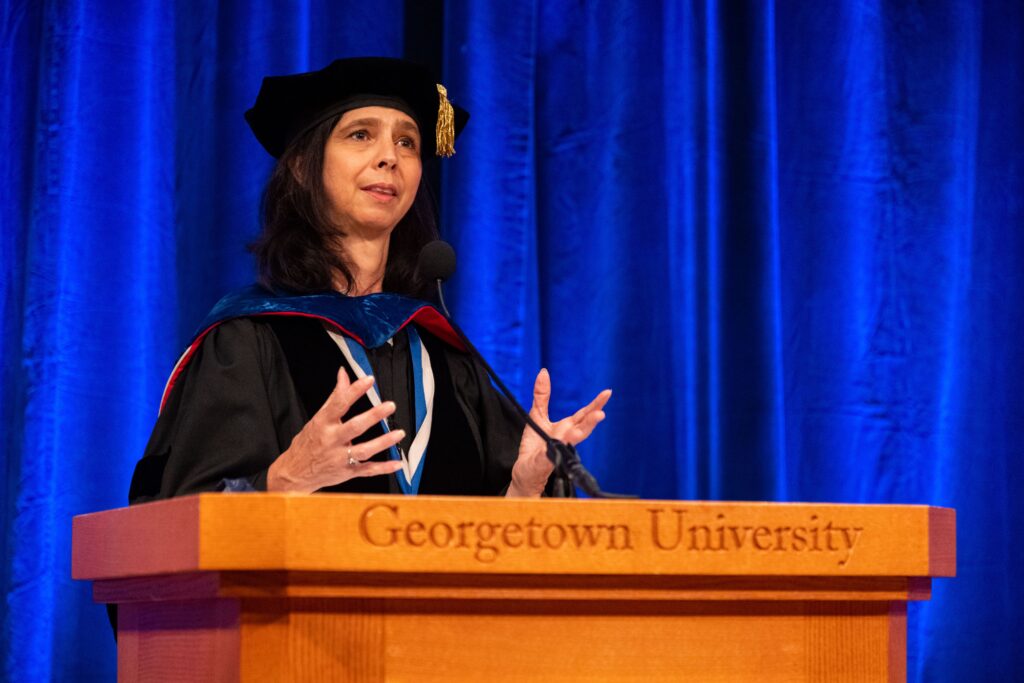Pivot Course Helps Fellows Tell Their Own Stories
Posted in News

Professor Jeanine Turner is equipping Pivot Fellows with a skill that seemingly has little to do with business or entrepreneurship — storytelling.
Since 2019, she has taught a class on personal narratives with the program. In this course, Fellows are encouraged to reexamine the personal stories they tell about themselves and reshape them in a way that reflects their strengths and interests.
“What I see in this course is an opportunity for each student to better understand what their strengths are and what they have to offer,” Turner said. “In light of the challenges that they’ve had to face, sometimes those challenges can lead to other strengths or other realizations about what they have to contribute to the world.”
In the first few weeks of the course, Turner said she typically sees a common trend across the Fellows: the stories they tell about themselves tend to be centered around their negative life experiences instead of positive ones. Through a series of intimate conversations and exercises, the Fellows are coached on how to rethink how they view themselves and, in turn, how they tell their stories.
Pivot Fellow Curtis Patterson is a creative writer, and is currently working to publish a children’s book. However, before Turner’s class, he had a difficult time with his own story.

“I had a generalized view of myself and my story,” he said. “This class has completely opened my eyes to what my story really is.”
Throughout the course, Turner said she notices the moments when Fellows begin to pivot their stories to better reflect their interests, qualities, and how they’ve overcome adversity.
“The first story that comes out is usually not the story that they end up really wanting to tell, and a lot of times the story that they lived is one they don’t even realize has power,” Turner said.
Near the end of the course, the Fellows record themselves telling their stories on video and provide feedback to one another. The exercise is meant to help Fellows gain more confidence in themselves and in sharing their life experiences.
“Telling your story can be difficult for anyone, but I think even more so if there’s some kind of failure that you’ve had to overcome,” Turner said.
The ability to tell one’s story is an invaluable skill for anyone in the workplace, but it is crucially important for returning citizens who face a wide range of challenges and stereotypes. It can also help them navigate relationships and personal branding as they move on to their next steps in careers or entrepreneurship ventures.
“The more we’re all educated on those stories, the better we all will understand what it means to be a returning citizen and what they can contribute,” she said. “We will never really know until we hear the stories from them.”
The course has had a profound impact on Turner as well. She has gained a deeper understanding of the challenges that returning citizens face and the need for society as a whole to listen to their stories.
“We have to be able to talk about these stories and people have to feel comfortable sharing those stories and understand how to share them,” Turner said. “And only then will people really be able to understand what it means to be a returning citizen.”
